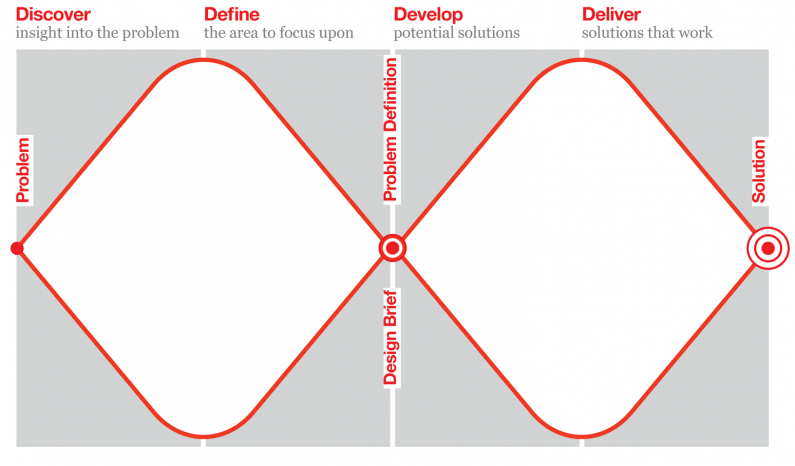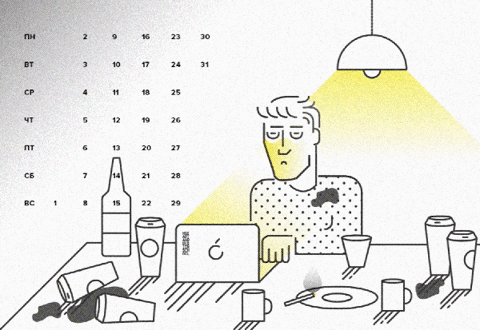Lessons from Design School
Learnings from my first 6 years of design studies.
Right after finishing design school I put together a list of things that I learnt from my education. More recently I decided sharing this list on Medium with the intent of helping other students understand and develop themselves as professionals.


Before getting started, some background
I graduated from a modernist, process-oriented design school. Our course was generalist, meaning we had classes in industrial, graphic and service design. I’m aware that most schools have a rather different, much more specific approach to design.
Even if your school is very different from what I describe, don’t worry. I’m sure you’ll still be able to take something out of my findings. If after reading you don’t feel like you do, I’d love to know more about your design education, so please share your experience in the comments. Medium might actually be a great space for this discussion :)
1. Mentors are everywhere.
A few months before starting design school I remember picturing myself learning from top level design masters. By the end of the second week of class, as you probably can imagine, I was already frustrated with my choice of course. Not because professors weren’t great, but because I never went home with the satisfaction of having learned something useful. If you ever got that feeling, you know how frustrating it can be. Truth is: this is probably your fault. There are great mentors everywhere, but it’s up to you to take the most from your conversations with them.
Never miss an opportunity of talking about whatever you’re working on, no matter how silly your projects may seem. Do this as much as you can, multiple times a day if you have the chance (to different people, please). I personally find talking about my personal projects a great way of assimilating what am I working on and why is this important. It’s also one of the best ways of working on your pitch and getting to know what really catches people’s attention, while also collecting feedback on how to improve, expand or cut down your ideas.
In return, listen to what others have to say. We spend a lot of time talking about ourselves, but if you want to succeed in design, you must nail listening other people. Be as a proactive listener as I told you to be a speaker: ask what people are working on and how do they do tasks similar to yours.


Don’t think twice before giving them a hand, it’s a fantastic way of getting out of your comfort zone and trying new things. Many of the subjects I’m most interested nowadays would probably take me much longer to get in contact with if it weren’t for showing interest in what my colleagues were working on and offering them an extra pair of hands.
Learning at university is way more than just going to class. Make sure you get some available slots on your calendar to spend unpretentious time with your peers.
2. Get familiar with the process
Talking about process might sound boring to some (most?) of you at first, but Design is all about a method. Despite of what many will tell you, following the method won’t ruin your creativity. It will rather inform it and enrich your solution, so be confident about it!


In 2005, The Design Council mapped how Designers across disciplines approached the creative process. They learnt that these professionals had “strikingly similar approaches to the creative process” and combined them in a visualisation known as ‘the Double Diamond’. If you’re not familiar with it I recommend checking their website.
3. First tools first
Now, only for a while, forget calling Photoshop, Illustrator or whatever software you’re using a tool (just for a while, you’ll probably still need them later). Designing will need you to use a different set of tools before pushing pixels (or atoms in case you’re an industrial designer).
The tools you’ll be using will sharpen your ability to read people’s behaviour and analyse how they interact with their surroundings. Unfortunately, these are also the tools we often disregard at school. In-depth interviews, personas, paper prototyping, among others are as powerful as your professors told you.
Understanding people and knowing when and which tools to use will make your design decisions feel much less arbitrary. Also, designing out of school is rarely a solo activity and mastering these techniques will help you working with other people and sharing the same vision of whatever you’re building together. In time you’ll be combining them and creating your own techniques.


Make sure you try as many design tools as you can while still in your school’s sandbox. Explore different ways of researching, ideating and prototyping solutions. It’ll leverage your ability to deal with a wide range of challenges and to work with multidisciplinary teams in the future.
In fact, experimenting has everything to do with the next item on this list.
4. Experiment as a way of (self)understanding
Explore with the tools, come up with yours, but don’t stop there. Go beyond and don’t miss the chance to experiment with your own routine.
While growing up we involuntarily condition ourselves and create habits that were never planned in the first place. Designing has a lot to do with how we create these habits (consciously or not). Understanding the basics of human behaviour can add a lot to your design process. On your next project, challenge yourself to design for changing a behaviour of yours.
Designing for building/ breaking habits has been a fantastic experience for me. I hope it turns out as great for you ;)
5. Stop defending your work
We are naturally attached to our creations. I mean, how could it be any different when you invest your time, sweat and tears into something you believe in and finally show it to the world? The norm is to expect people to like it.
The downside of being too attached to your creations is that when you get your work critiqued, you’re more focused on counter-arguing than on learning from it. It is an involuntary reaction that almost everyone I know — myself included — have a hard time dealing with. Being ready to sleep on people’s feedback and eventually change your opinion is as difficult to learn, as it can be illuminating.


Remember: there’s a chance your tutors are wrong or your message just didn’t come across. Also there’s no perfect solution to any problem.
6. Zoom in. Zoom out. Then zoom in again.
As we delve in our projects it is common to get lost and invest too much of our time crafting the details and loose focus on the main challenge of the project. Take a step back. See how what you’re working on plays a role in the bigger picture.


Remember the people you talked to in the beginning of the project and imagine how they’d interact with your work. How were they doing the same task before your design? What problem are you solving with it? Keep moving forward with your design by associating your decisions to your previous findings.
7. Make the most out of your free time
Much has been written about productivity, so I’ll keep this last one short. People say productivity isn’t about working more, but better. And it is true. But productivity isn’t just about working, it’s about making the most of your time: doing work, but also doing all the other things you like.


Making the most of your free time means not being so hard on yourself: watch good films, read fiction or any other non-technical books that you like, go to that museum exhibition or music festival, meet new people, spend time with your family.
None of the things you enjoy doing are less important than your time spent working. These are the things that will reflect on your work and make it stand out. If you’re able to show on your work who you are, then you have better chances of starting your career working on things that you actually care about.
Finally: don’t stress. I’m sure you’ll do great.